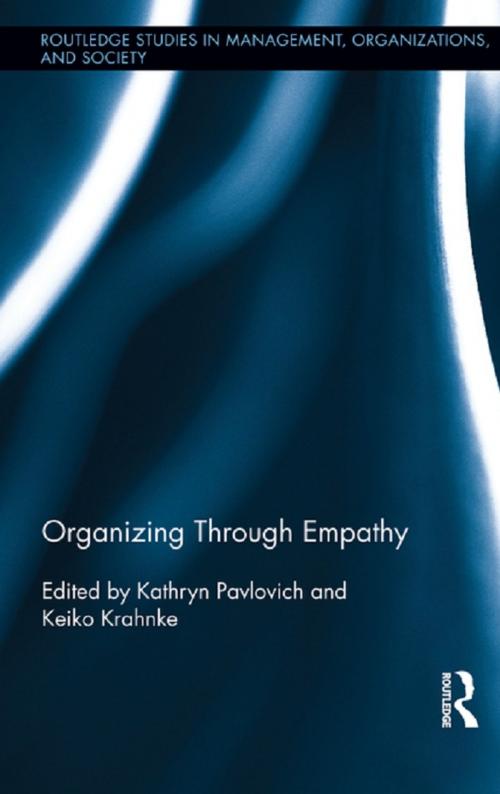Organizing through Empathy
Business & Finance, Human Resources & Personnel Management, Organizational Behavior, Business Reference, Business Communication| Author: | ISBN: | 9781135014322 | |
| Publisher: | Taylor and Francis | Publication: | September 11, 2013 |
| Imprint: | Routledge | Language: | English |
| Author: | |
| ISBN: | 9781135014322 |
| Publisher: | Taylor and Francis |
| Publication: | September 11, 2013 |
| Imprint: | Routledge |
| Language: | English |
Empathy dissolves the boundaries between self and others, and feelings of altruism towards others are activated. This process results in more compassionate and caring contexts, as well as helping others in times of suffering. This book provides evidence from neuroscience and quantum physics that it is empathy that connects humanity, and that this awareness can create a more just society. It extends interest in values-based management, exploring the intellectual, physical, ecological, spiritual and aesthetic well-being of organizations and society rather than the more common management principles of maximising profit and efficiency.
This book challenges the existing paradigm of capitalism by providing scientific evidence and empirical data that empathy is the most important organizing mechanism. The book is unique in that it provides a comprehensive review of the transformational qualities of empathy in personal, organizational and local contexts. Integrating an understanding based upon scientific studies of why the fields of positive psychology and organizational scholarship are important, it examines the evidence from neuroscience and presents leading-edge studies from quantum physics with implications for the organizational field. Together the chapters in this book attempt to demonstrate how empathy helps in the reduction of human suffering and the creation of a more just society.
Empathy dissolves the boundaries between self and others, and feelings of altruism towards others are activated. This process results in more compassionate and caring contexts, as well as helping others in times of suffering. This book provides evidence from neuroscience and quantum physics that it is empathy that connects humanity, and that this awareness can create a more just society. It extends interest in values-based management, exploring the intellectual, physical, ecological, spiritual and aesthetic well-being of organizations and society rather than the more common management principles of maximising profit and efficiency.
This book challenges the existing paradigm of capitalism by providing scientific evidence and empirical data that empathy is the most important organizing mechanism. The book is unique in that it provides a comprehensive review of the transformational qualities of empathy in personal, organizational and local contexts. Integrating an understanding based upon scientific studies of why the fields of positive psychology and organizational scholarship are important, it examines the evidence from neuroscience and presents leading-edge studies from quantum physics with implications for the organizational field. Together the chapters in this book attempt to demonstrate how empathy helps in the reduction of human suffering and the creation of a more just society.















